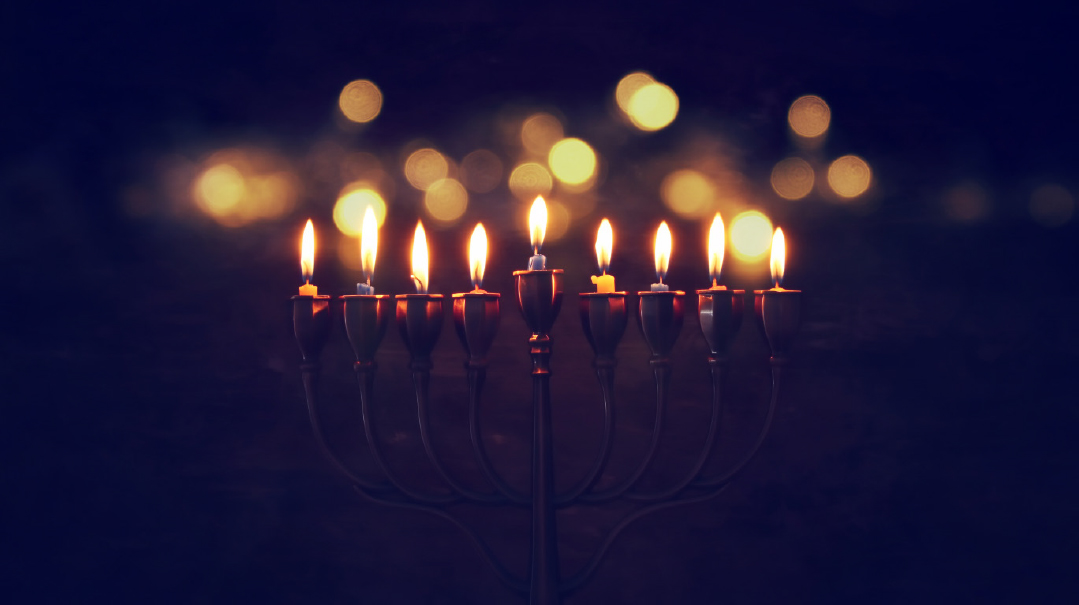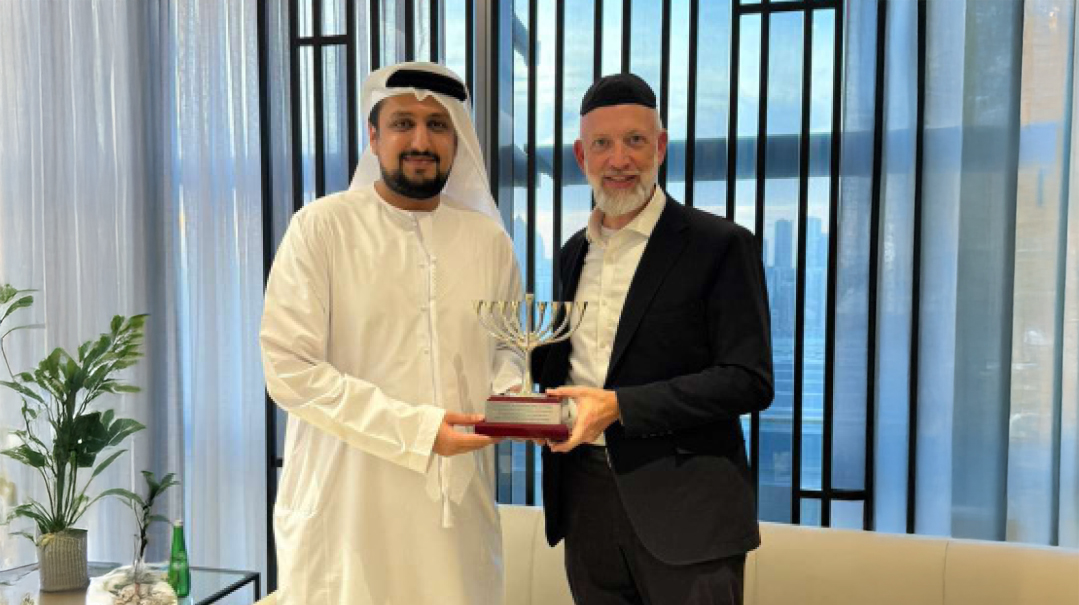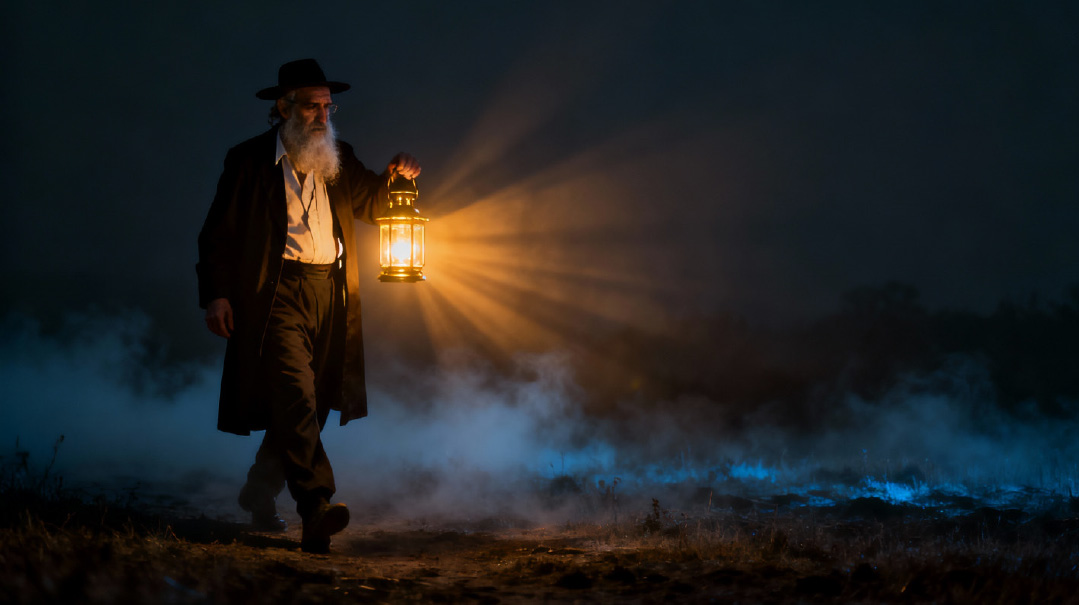Shattered Idols

When compassion breeds monsters

Galus is not merely a punishment, but rather a journey. It is a painful journey indeed, but one that enables us to learn wrong from right, often by experiencing terrible disappointment in the idols we worship.
The neviim describe Klal Yisrael as an unfaithful woman who falls for the glamorous “other,” only to be humiliated by rejection from that same “other.” The neviim paint wrenching scenes of betrayal and regret, but after we are rejected, we come back to the One Who loves us faithfully and unconditionally.
This was true of the galus of Yavan. The tragedy of that galus lay not so much in the Yevanim as in the Jews who followed them, thinking they had found a better way of life. Yavan’s cruelty toward us opened the eyes of many of these people; Klal Yisrael returned to Hashem and the eternal light of the Menorah.
This pattern repeats itself time and again, even in our own times. Science and philosophy were thought to be the harbingers of a beautiful new world — an enlightened and civilized society. No country embodied this “advanced civilization” to the extent Germany did. Its people were the most educated, its scientists the most advanced, its thinkers and poets most profound. The country was a paradigm of what science and reason could achieve. It is no wonder, then, that German Jews so idolized their country, and that it played so prominent a role in their identity. In fact, this national pride gave birth to convoluted formulations that described the Jewish and German identity as being one and the same.
That idol came crashing down on us with horrific vengeance. Whatever a person’s beliefs were after the war, the belief that science or philosophy could create a moral society had thoroughly evaporated.
Another idol that we pursued avidly was Communism. It grabbed the hearts and minds of so many Yidden. An entire generation was swept up in its worship. They gave their hearts and minds to it, and their lives as well. And then it turned on them. It was a rude awakening, but that idol is gone.
As we moved on, a new ideology has gripped us. For the lack of a better word. let us label it “progressivism” or “liberalism.” In our world today, there is a knee-jerk reaction against those words. But that reaction overlooks the attraction liberalism, at its inception, had for traditional-minded Jews in a time when many injustices had yet to be addressed in our society.
One hundred years ago, old people were at the mercy of their relatives, with no way to support themselves. A sick person who could not afford medical care was left to die. Handicapped people were basically imprisoned in their homes, as no buildings or bathrooms accommodated them. People with Down syndrome were locked away. Newspaper ads in the classified section stated, “Only Christians need apply.” Black people had to drink at a separate fountain. And we, the Jews, were the unwanted immigrants, who had the doors of America slammed in our face, dooming us in Europe.
The same conservative movements that we so adore today were the ones that fought to hold on to that way of life. And the liberal and progressives that we despise were the ones who fought and succeeded in creating the social norms that we take for granted today.
Is it any wonder that so many Jews spearheaded that ideology? Is it not firmly anchored in our most basic Jewish ethic of compassion? Isn’t Avraham Avinu the embodiment of kindness?
So now the question is, how did we go wrong with compassion?
Let us turn to Chazal: “He who expresses mercy toward the cruel and wicked will eventually express cruelty toward the merciful and righteous” (Koheles Rabbah 7:24; Tanchuma Metzora 1; Midrash Tehillim 7, et al).
What are Chazal teaching us in this profound statement? The Maharal explains many times that any behavior, no matter how positive in its essence, will eventually become destructive if it is not controlled and checked. The Rambam in Hilchos Deios says that it is actually the mitzvah of v’halachta bidrachav — “You shall go in His ways” — to control and channel the various middos in line with Hashem’s will. Any middah undefined by boundaries will inevitably lead to evil at some point. Thus, mercy is a wonderful attribute. But when mercy releases a killer from prison, mercy becomes the enabler of more murder. Thus, he who is compassionate toward the cruel inevitably becomes cruel toward the compassionate.
The “old world” was strict and demanding. Authority — whether church or state — was venerated. If someone could not fend for himself, well, tough luck; no one owes you anything. If you are different, then you don’t belong. Society was indeed short on compassion.
Then hearts stirred and inspired people to make society more compassionate, caring, and embracing. Much good was accomplished. But this compassion was not tempered by any elements of restraint, discipline, obligation, or authority, etc. Morality started and ended with compassion.
Slowly, even so noble a middah as compassion became grotesquely perverted. There is no good and no bad, only “different.” There is no industriousness or laziness, just entitlement. There is no personal restraint or dignity, just indulgence and immediate gratification.
As this wave of compassion swept the world, Jews, who are rachmanim bnei rachmanim, were swept up in it. It connected to an emotion that spoke so strongly to us as Jews. For secular Jews, this was the Judaism they wanted; it was all “tikkun olam” — no laws, no restrictions, no Divine authority. Jews were the heart and soul of this new wave of the Western worldview.
And then October 7 came. The entire enlightened, “compassionate” world came crashing down on us. Not only was there no sympathy for the butchered and terrorized, but calumny and accusations were heaped upon us.
What happened? Is the entire world really composed of Jew-haters who would like to see us dead? I don’t think that is the root of it. Most are decent people who are motivated by feelings of compassion. But these are mindless feelings. No one is asking of himself, “Who is persecuting whom?” Or, “If a killer is holding a baby as a shield and is coming to kill me, can’t I defend myself?”
Rather, they shout simple slogans, meant to arouse passions without thought.
But more than that. Their reaction reflects the belief that right and wrong are determined by the strength of emotion, not by G-d, nor by the laws of the Torah. And when that happens, mercy turns to cruelty, and would-be angels become demons.
For much of secular Jewry, this was a moment that shook core beliefs and understandings. It was like the moment when the Nazi officer ripped the World War I medals off the Jew’s chest and barked, “Filthy Jew, you defile Germany with your presence!” It was like the moment when the Soviet NKVD trained their guns on their Jewish comrades, who had persecuted fellow religious Jews with great ardor, and charged, “You Jewish cosmopolitan bourgeois, the proletariat is downtrodden as long as you’re alive!”
For us, members of the chareidi public living in our insulated shtetl society, this betrayal isn’t personal, because we never replaced Torah with the idol of liberalism. While we recognize the surfacing of these sentiments as a nuisance and perhaps a danger, we are not suffering the humiliation of the spurned woman the neviim describe. But for people who participate in fully in secular society, this rejection was devastating.
So many wonderful brethren, hitherto very lightly affiliated, have had an epiphany of connection to Klal Yisrael. One wishes to put an arm around them, and say: “Yes, dear brother, Avraham’s middah was kindness and compassion, and that is definitely the bedrock of our people. But Avraham is not enough of a foundation to build G-d’s nation upon. It is the added application of Yitzchak and Yaakov’s realization — that compassion is only good when weighed and measured by the laws of Hashem’s Torah — that founded our people. Compassion may be the engine, but Torah and truth are the steering wheel and brakes.
“Come, join us and reclaim those two other Avos that are rightfully yours, and then we will embrace together the chesed and emes that is the eternity of the Jewish People.”
(Originally featured in Mishpacha, Issue 989)
Oops! We could not locate your form.







